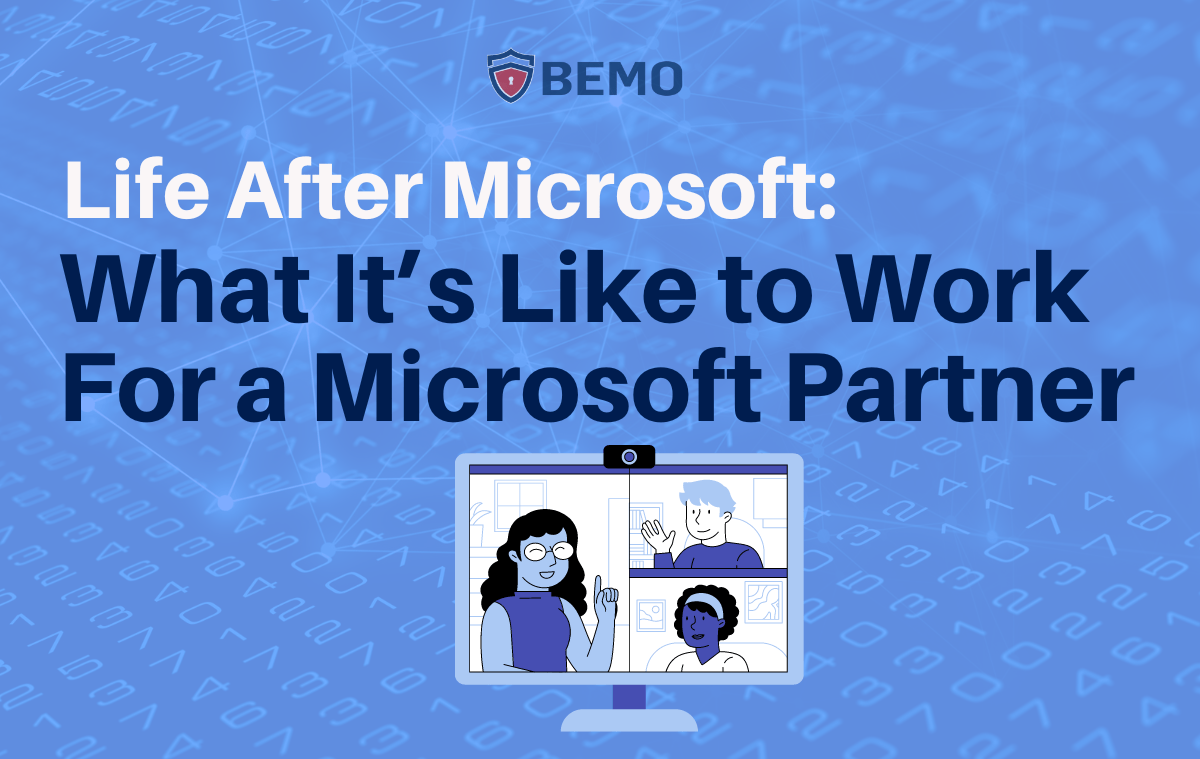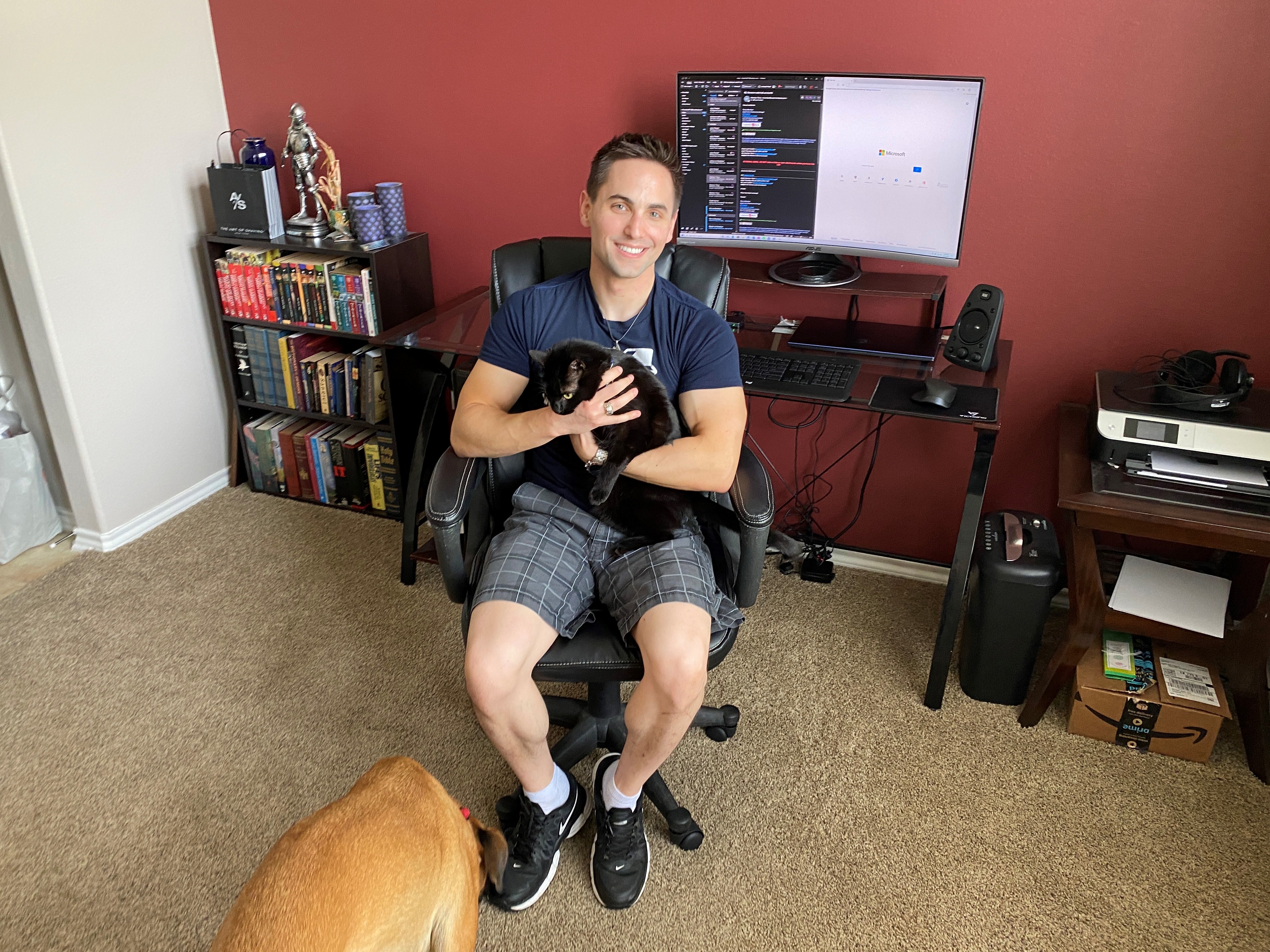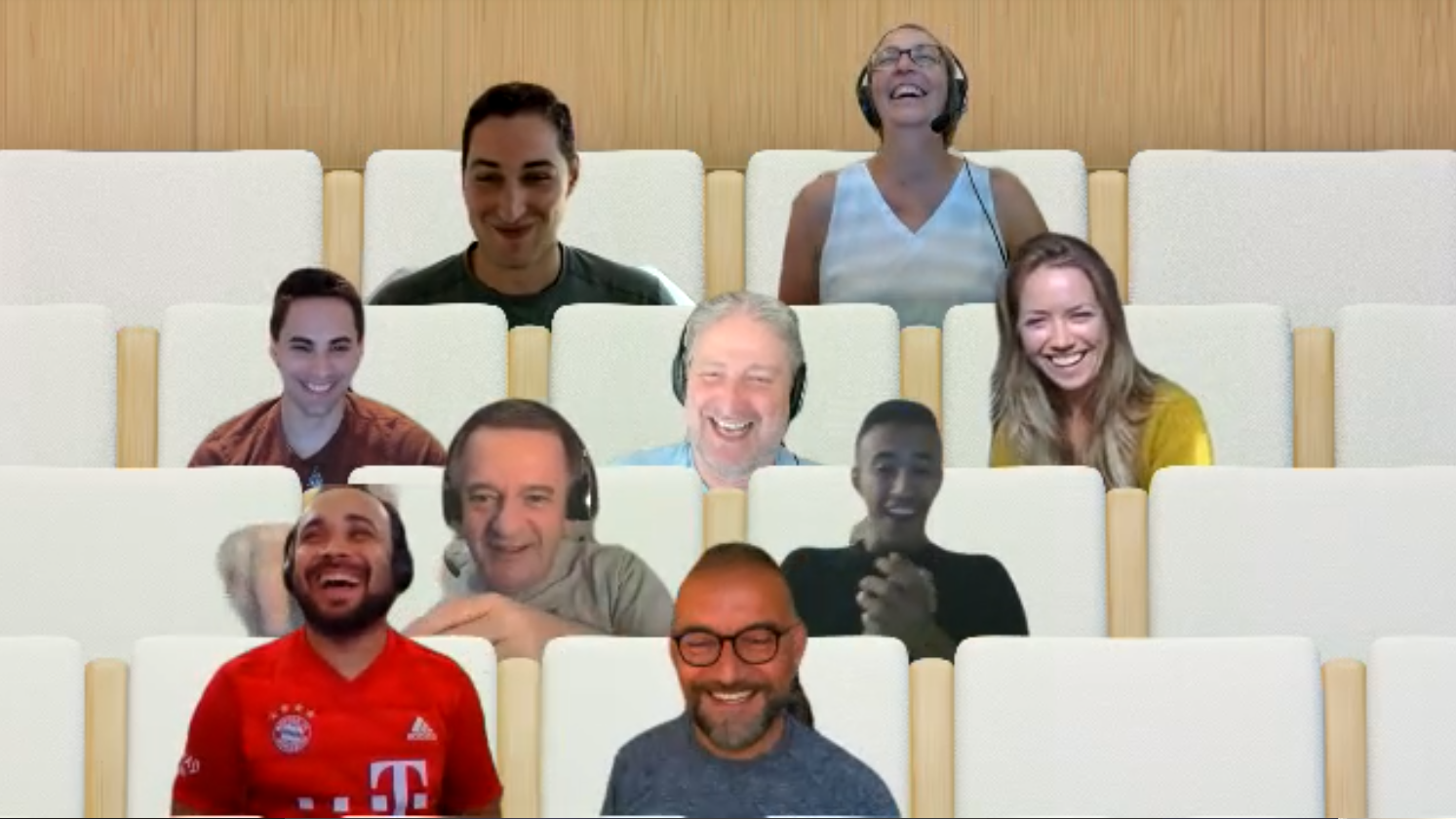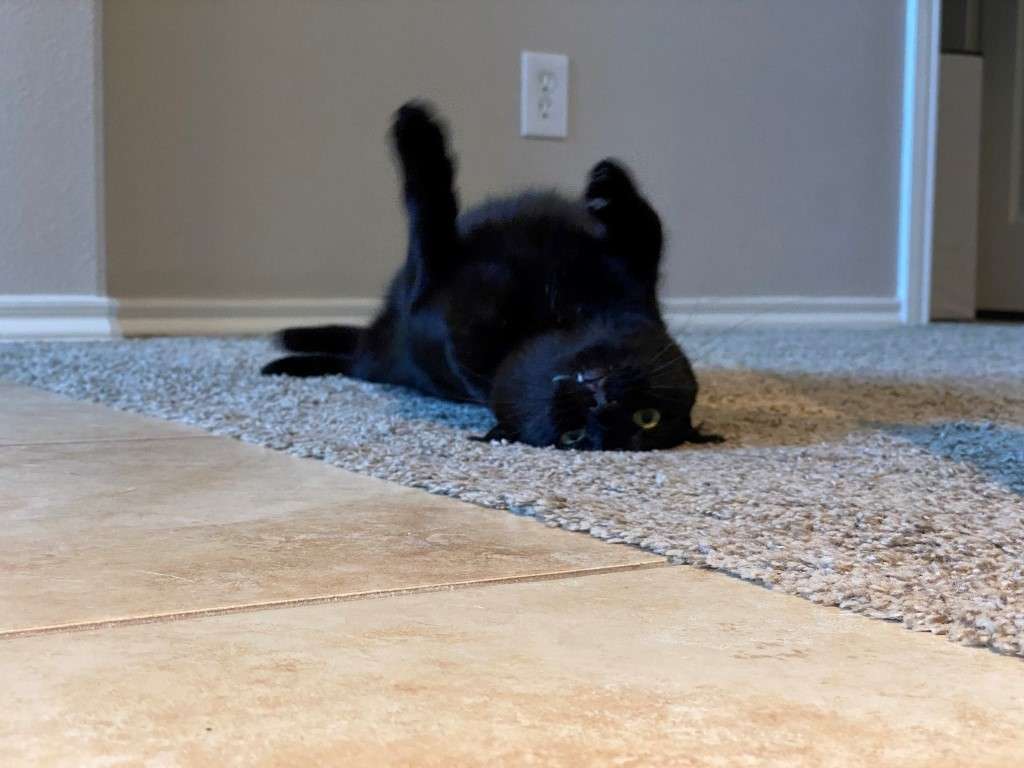7 min read
Life After Microsoft: What It’s Like to Work For a Microsoft Partner
Josh Franklin
on Sep 04, 2020

Three months ago, I transitioned from my job as a Cloud Technical Expert at Microsoft, into a role as a Cloud Solutions Specialist with BEMO. Going from one side of Microsoft cloud sales to the other has been a very interesting experience, enough so, that I thought it worth sharing. So, in this blog, I’ll compare the various aspects of working for a giant corporation versus working for a much smaller company, so that anyone (maybe you?) who is looking to make the same type of change has a better idea of what to expect.
I'll cover the 5 topics I think best illustrate the differences one experiences while working for these two types of companies. They are:
- Commuting to work
- Daily workload
- Technical knowledge
- Work culture
- Physical & mental health
- The takeaway
Commuting to work
The daily commute is probably the first thing people think about when they go from an office-type setting to 100% remote work. I can attest that it is SUPER nice not having to worry about traffic anymore.
Working at Microsoft
As a Cloud Technical Expert (CTX) at Microsoft, I was based out of the closest Microsoft Store so that I could be easily accessible for any SMB or EDU customers in need of assistance with the cloud. The closest Microsoft store to me was at one of the main malls here in Houston, TX called Baybrook. The mall is only about a 10-minute drive from my house, but construction and general traffic could easily make that commute much, much longer. Plus, the commute times quickly doubled or tripled around the holidays. This was just my normal commute. Other times, I would be tasked with providing training for Microsoft Enterprise customers who were easily an hour away from my house.Working at BEMO
Working for BEMO, I am completely remote. So, my commute consists of walking from my bedroom to my office, which is about a 30-second walk. Traffic and holidays usually don’t affect the commute time between rooms, however my dog Kodama can cause delays when he wants pets. He’s also not a very good office assistant. Here he is, sleeping on the job.

Daily Workload
Any job will keep you busy if you’re doing it right. However, having the freedom to create and organize your own daily workload is really nice. You control what needs to be the focus of the day.
Working at Microsoft
As a CTX at Microsoft, a normal day for me would consist of hosting any SMB workshops I was scheduled for, reaching out to customers who were interested in Office 365 and/or are having issues with their current licenses, deploy Office 365 for any SMB customers who had made a recent purchase, train employees over any changes made to Office 365, and help out the in-store technicians with customer appointments when they got backed up.It was definitely a fun job to have, and I loved all of my co-workers. There was a lot of social interaction and relationship building with the store employees and with our greater community as a whole. This is a class that we hosted teaching kids how to develop games.

I have to say that it’s an aspect I sometimes miss. However, with the current state of the world, social interaction is pretty limited as it is.
Working at BEMO
With BEMO, my daily workload can change by the hour. My day mostly consists of setting up meetings with leads and assessing their cloud migration needs for email, file and domain controller migrations and Microsoft Voice setup. I meet with our current customers to learn the scope of their projects and explain how BEMO can help. I have also been holding meetings with channel partners to help them better understand the cloud offerings beyond basic Microsoft 365 licenses, and what various services BEMO can offer their customers, and researching to develop a deeper understanding of cloud services and Azure. I mentioned that my workload can change drastically, and what I mean is, I can wake up with only 2 meetings scheduled on my calendar for the day, but within an hour or so, two meetings could easily be increase to 6+ meetings throughout the same day. It can seem a little overwhelming on paper, but it’s actually really cool to meet with so many different people and find out what their vision is when it comes to moving their business to the cloud. It also helps the day go by SUPER fast (and so do my "co-workers").

Technical knowledge
While both companies require a certain level of knowledge around Microsoft's products, I didn’t expect there to be such a vast difference in the depth of technical knowledge I'd need to employ when moving to a partner. It’s been a really cool challenge and I find myself learning new things on a daily basis.
Working at Microsoft
So, this is where it gets interesting. You would think that I would need a much higher level of technical knowledge working for Microsoft, but the truth is, because Microsoft is such a large company, they have many different employees to cover the various aspects of their offerings and services. As a CTX, my technical knowledge concentrated on Microsoft 365 licensing, how to deploy it, and how to fix common issues that arose for customers regarding their tenants or accounts. If further assistance was needed, Microsoft had employees on account teams that would handle the more complex offerings or licenses.
Working at BEMO
In my time with BEMO, I have learned an unbelievable amount regarding the more complex M365 licenses and add-ons, email and file migrations, moving from on-premise setups to the cloud, and Azure. Being on the other side of the setup and having to actually scope out the full spectrum of the migration has meant that I’ve learned a lot about IT in addition to licensing. I’ve learned how email migrations actually work, how they are different when migrating from different vendors (like GoDaddy or GSuite), how file migrations vary by server like Dropbox, etc. and even how to port phone numbers. It’s a ton of information and every customer is unique so every day I learn more. In fact, my old team at Microsoft will often reach out to me for help when they have more complicated customer needs.

Work culture
In my experience, a company’s work culture can make or break a career experience. I’ve worked for several large companies, and not all of them had a positive work culture. BEMO is the first small company I’ve worked for, and I’m happy to say the culture here is AMAZING.
Working at Microsoft
As far as large companies go, Microsoft had by far the best work culture I have ever experienced. They are all about transparency and giving you the tools to improve yourself. If I had questions or concerns, I could reach out to literally ANYONE in the company. Heck, I could even reach out to Satya through Teams if I wanted to (not that I was ever brave enough to do so). The team I worked with was like a big family, and we all supported one another. That same sense of teamwork seemed to be the driving factor for most teams in the company.
Satya would often have employee chats where he would live stream himself at the main Microsoft campus answering questions from various employees. One thing he said often was that it’s OK to fail as long as you learn from it and improve yourself. His message is something that always stuck with me as I continuously learned and tried new things with my time there. If I tried something and it didn’t work, then it was time to figure out WHY it didn’t work, and try it a different way.
Working at BEMO
BEMO is a much smaller company than Microsoft. Because of that, the sense of family is much stronger. Unlike at Microsoft, I reach out to the CEO & CFO here all the time. I’ve even had them on calls with me. We also have Virtual Water Cooler talks every other week. Our employees are spread out all over the world, and I’ll be lucky if I ever get to visit all of them. BEMO knows this, so our meetings together to talk about everything BUT work (something that our CEO will always correct us on if we start to talk shop) are a great way for us to interact and see what everyone is up to. Plus, twice annually, we will be having company retreats where we all meet up somewhere. Next stop? Mexico! This is us goofing off in Together Mode during one of our Virtual Water Cooler chats:

I also feel like I genuinely have input on the future of the company. Not only by how well I do my job, but also as BEMO shapes itself for the upcoming years, I am on a lot of the calls giving my thoughts and feedback on how I feel we should approach certain things. Our team is VERY innovative with our Microsoft partnership, and some of the ways we help Microsoft employees with their customers’ needs are things I wish other partners would have done while I was a CTX.
Physical & mental health
This is a question I see asked a LOT when people go from working in the public to working remotely. Most people assume that when you work from home, your mental and physical health can quickly deteriorate. While of course it’s true that this is a possibility, it really depends on the individual.
Working at Microsoft
At Microsoft, I had significantly more social interaction. Whether it was with clients or co-workers, I never had a moment where I felt alone. From a physical health standpoint, while I WAS walking around more, I was also eating worse. Being as that I was based out of the mall, I would usually try and get something healthy from the food court. However, even “healthy” food court food isn’t exactly good for you.Working at BEMO
I’m not going to lie, at first I was worried about both my mental and physical health when I made the transition to remote work. Being alone all day and siting at a desk doesn’t exactly sound like the picture of healthy living, right? Well if anything, I’ve actually become HEALTHIER because I’ve made it a point to ensure that I get up and stretch, walk Kodama, and take 5-minute breaks throughout the day. Not to mention I eat WAY healthier since I don’t get food court food every day.
The only part that is harder is the social interaction. Luckily, we use Teams at BEMO, and I interact with my co-workers throughout the day. We also make it a point to be on video when we have meetings to have “face-to-face” interactions, and I honestly believe that this helps tremendously.
Speaking of social interaction, my pets LOVE me being home all the time. Here is my cat Jynx begging for more attention…

The takeaway
So how do I like the transition from Microsoft to BEMO? Like any job, especially one with such a lifestyle switch, it's been an adjustment, but so far I love it. As long as I give myself tasks throughout the day and keep myself busy with work, the day actually goes by MUCH faster than it did at Microsoft. One huge perk for me is having holidays off, as I haven’t been able to spend Thanksgiving with my family in several years. While making the switch to remote work may not be for everyone, if you’re good at setting goals and working hard to reach them, it is an experience unlike any other.
Have you made the switch? Tell us your experience in the comments section below or feel free to reach out with questions 👇
Top 10 Posts
-
Windows 10 Pro vs Enterprise
-
Migrate From Gmail to Office 365: Step-By-Step Guide
-
Windows 10 Enterprise E3 vs E5: What's the Difference?
-
What are the 4 types of Microsoft Active Directory?
-
How to Migrate from GoDaddy to Office 365
-
Google Workspace to Office 365 Migration: A Step-by-Step Guide
-
How to Set Up Office 365 Advanced Threat Protection
-
10 Benefits of Microsoft Teams
-
Top 3 Reasons to Move From Google Drive to Microsoft OneDrive
-
How to remove Office 365 from GoDaddy (tips and tricks)
-2.png?width=1080&height=1080&name=Untitled%20design%20(5)-2.png)



Leave us a comment!